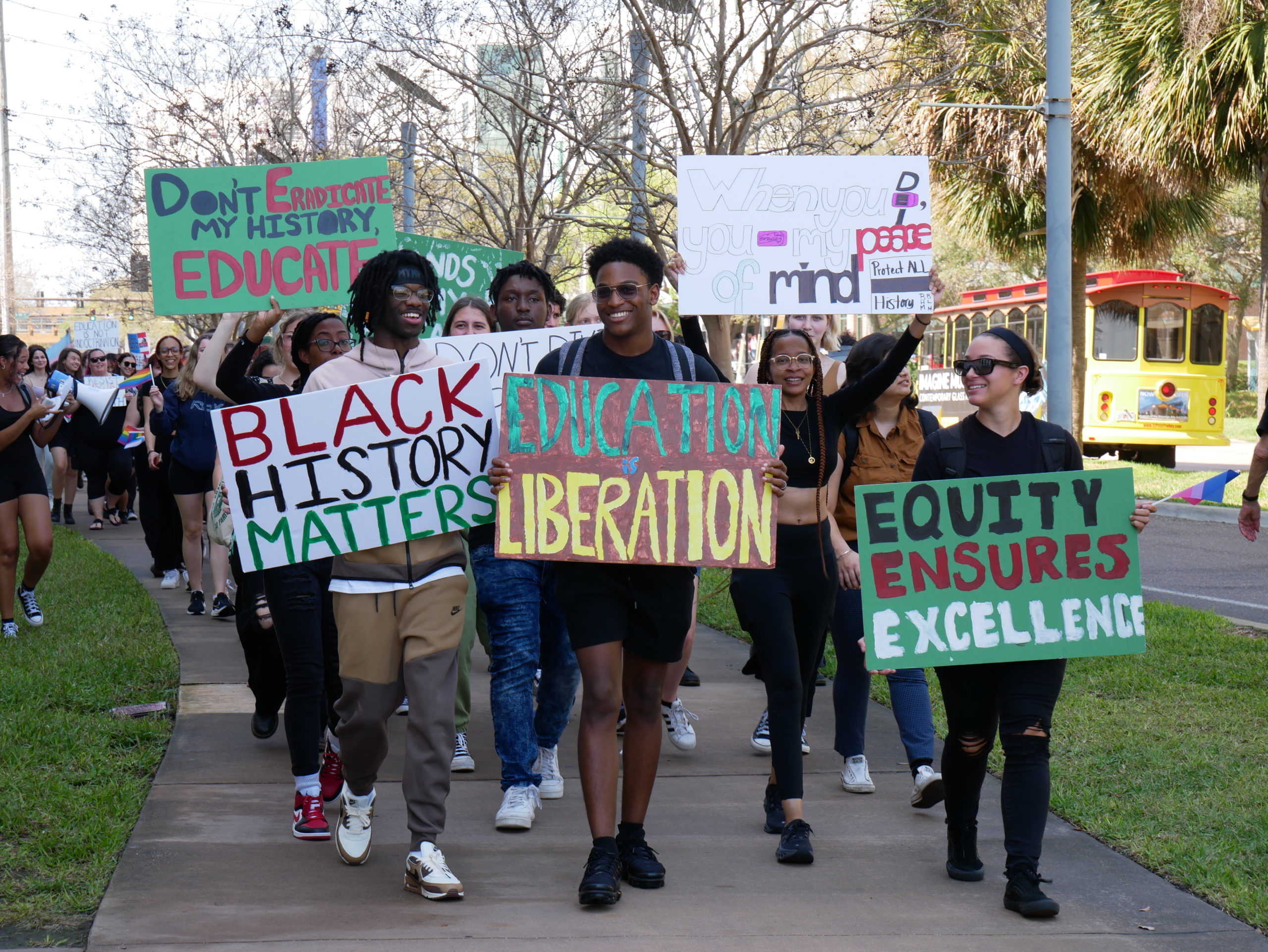Students at USF St. Petersburg organized a February walkout in protest of Gov. Ron Desantis’ education policies which attempts to ban DEI and LGBTQ+ programs at Florida universities.
Courtesy of Kelah Lehart
By Jeffrey Caicedo
The ban on diversity, equity, and inclusion (DEI) initiatives could have far-reaching consequences for the campus community.
The Florida legislature are discussing a potential bill that would ban state colleges and universities from funding programs that promote DEI. The bill has caused major concerns among students about their academic freedom and their role of higher education in promoting social justice.
With the bill being vague on prohibiting courses “based on untested, speculative, or exploratory content,” many are also worried that it may be used to target a variety of academic initiatives and activities, such as those that clarify theories of evolution, gravitation and physics.
There are worries that this bill would make it more difficult for colleges and universities to deliver the courses that are necessary for a comprehensive education. For instance, evolutionary biology, which is taught at the University of South Florida, is a generally acknowledged scientific theory that is included in several science courses at the college level in Florida.
It’s uncertain if such courses could continue to be taught if the measure were to pass without running the danger of losing funding or institutional support.
Concerns about the function of higher education in advancing social justice have also been expressed considering the bill’s prohibition on DEI programs. DEI programs aim to advance inclusivity and equality on college campuses, and their significance has grown recently as institutions of higher learning work to confront systemic racism and prejudice.
With the importance of diversity and inclusion, the Office of Multicultural Affairs (OMA) whose mission is “to create a safe and inclusive environment for all marginalized identities that promotes authenticity and self-liberation” at USF St. Petersburg is also at risk if this bill passes.
The proposed prohibition on DEI activities could have significant ramifications for those who depend on these initiatives for advocacy and support. It might also be harder for schools and universities to draw in and keep a diverse staff and student body, which might be detrimental to the quality of education and research conducted at these institutions.
“I’m in a fellowship called the Racial Justice Fellowship which is done through St. Petersburg Truth, Racial Healing and Transformation,” Kima Sibayan, a sophomore majoring in Social Studies at USF St. Petersburg said. “It was done through four universities in Pinellas County, two private and two public, but next year the two public universities, our school included, have to leave the program since the funding has been cut.”



